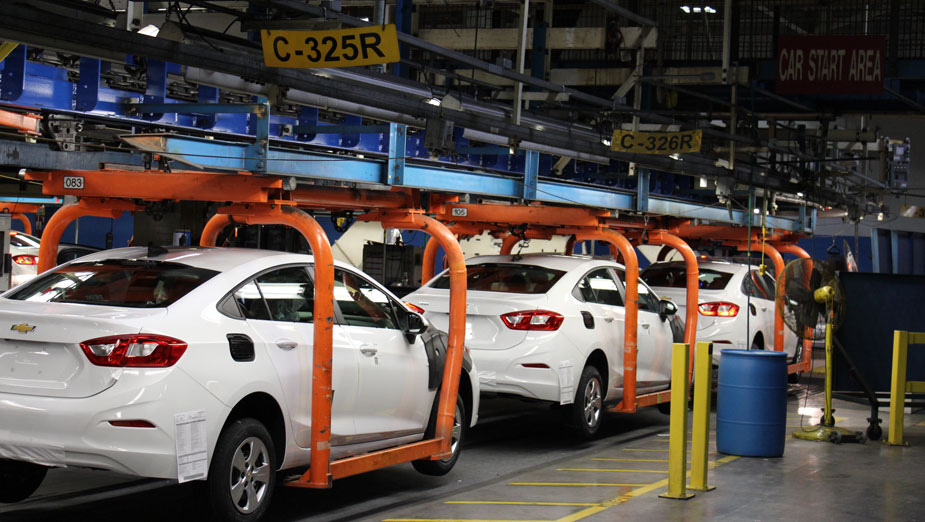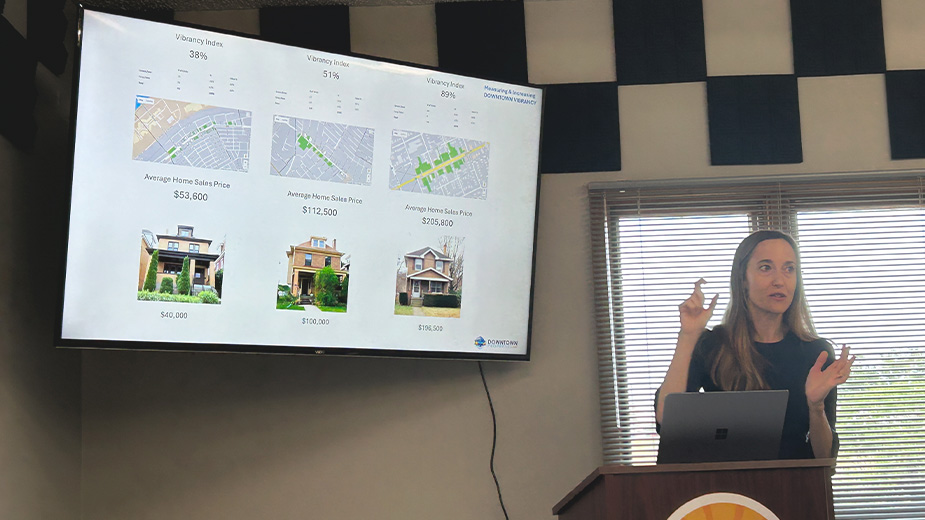Tax Authority Postpones Action on GM Incentives
YOUNGSTOWN, Ohio – A decision on whether General Motors should repay the state of Ohio more than $60 million for violating incentives agreements it was awarded in 2009 will have to wait.
The matter was tentatively scheduled to come before the Ohio Tax Credit Authority at its monthly meeting Monday morning but was removed at the last minute.
Also moved off the agenda were the consideration of new incentives targeted for GM’s joint venture with LG Chem – Ultium Cells LLC – the $2.3 billion electric-vehicle battery plant that the company is building in Lordstown.
Todd Walker, spokesman for the Ohio Development Services Agency, said that the two issues were scheduled to appear before the tax authority as late as Friday.
“It’s not uncommon for the agenda to change prior to the meeting,” Walker said in an email. The GM incentives would be considered at a “future meeting,” he said.
The next tax authority meeting is scheduled for Sept. 28.
In June, The Business Journal and ProPublica first reported that the state of Ohio placed GM on notice in March that it violated the terms of two tax-credit agreements worth $60.3 million when it closed its Lordstown manufacturing plant in 2019. In a letter to GM, the state’s Development Services Agency considered recommending to the tax credit authority that it seek 100% restitution from GM for violating the terms of incentives agreements.
GM has said that it shouldn’t repay those incentives, or at least a substantial portion of them, according to documents obtained by The Business Journal and ProPublica.
The automaker cited deteriorating market conditions in the small car segment as a major factor in closing the plant, which at the time produced the Chevrolet Cruze.
In addition, GM emphasized that the state should consider its $2.3 billion investment in building the new Ultium plant in Lordstown, its other operations in Ohio and that it far exceeded its investment in the Lordstown plant while it was operating.
The state awarded two incentives agreements to GM: a job creation tax credit agreement worth $14.2 million and a job retention tax credit deal worth $46.1 million in 2009. In return, GM agreed to keep its Lordstown complex operating until 2040.
GM idled Lordstown in March 2019, placing it on “unallocated” status and eliminating 1,600 jobs. It closed the Lordstown plant permanently in October of that year and sold it to Lordstown Motors Corp. in November for $20 million.
Several public officials reacted by demanding that GM repay its entire incentives liability.
Former governor Ted Strickland, whose administration awarded GM the incentives in 2009, told The Business Journal in July that the automaker clearly violated the agreements and should be made to repay all of those tax credits.
“I absolutely think the state should go after that,” he said. “I think there was a commitment and it was not kept. The state deserves to have those monies returned.”
While he acknowledges that market conditions change, he added that GM made a commitment to the Mahoning Valley and the state of Ohio when it accepted those incentives.
“A commitment is a commitment,” the former governor said. “My problem with GM is that they could’ve put another product in that great plant.”
U.S. Sen. Sherrod Brown, a Democrat, and Rob Portman, a Republican, have also urged the state to collect from GM. Other elected officials such as U.S. Rep. Tim Ryan, D-13, and state Sen. Sean O’Brien, D-32nd, have also called for GM to repay at least some of the liability.
Gov. Mike DeWine in June stepped back from demanding that GM repay the entire amount, noting during a news event at Lordstown Motors that the state was “not actively pursuing” a clawback and instead was focused on how to help the company create jobs in Ohio.
Perhaps the most forceful call for GM to pay full restitution came from Ohio Attorney General Dave Yost, who on June 30 took the unprecedented step in filing an amicus brief before the tax authority demanding it collect the entire amount from GM.
The attorney general urged the Ohio Tax Credit Authority to demand nothing short of a 100% refund from GM. Anything short of this constitutes a “moral hazard of saddling Ohio taxpayers with GM’s business risk,” according to the brief.
The attorney general’s brief called into question GM’s contention that market forces precipitated the Lordstown closure. “GM is one of America’s largest corporations, valued at $50 billion when it shuttered Lordstown. GM simply has no valid excuse or argument.”
According to Yost’s filing, GM initiated a pattern of breaking its promise to the state in January 2017 when it eliminated an entire production shift at Lordstown, cutting 1,200 jobs. A second shift was slashed in July 2018, eliminating another 1,500 jobs. The remaining 1,600 hourly and salaried employees were cut when the last Cruze rolled off the line in March 2019.
Should the tax credit authority mandate that GM repay it full tax credit and the company refuse to honor the demand, then “the attorney general is prepared to enforce the matter in court,” the brief said.
“Profit, it has long been said, is not a dirty word in Ohio,” Yost’s brief continued. “But a broken promise is.”
Related Coverage
June 15: Exclusive: Ohio Seeks $60M from GM for Closing Lordstown Plant
June 17: GM Should Pay Something for Closing Lordstown: Brown, Portman, Ryan Say
June 24: DeWine: Ohio ‘Not Actively Pursuing’ $60M Clawback from GM for Lordstown Closure
June 30: Yost Demands GM Repay $60M in Tax Credits for Lordstown Plant
Copyright 2024 The Business Journal, Youngstown, Ohio.



